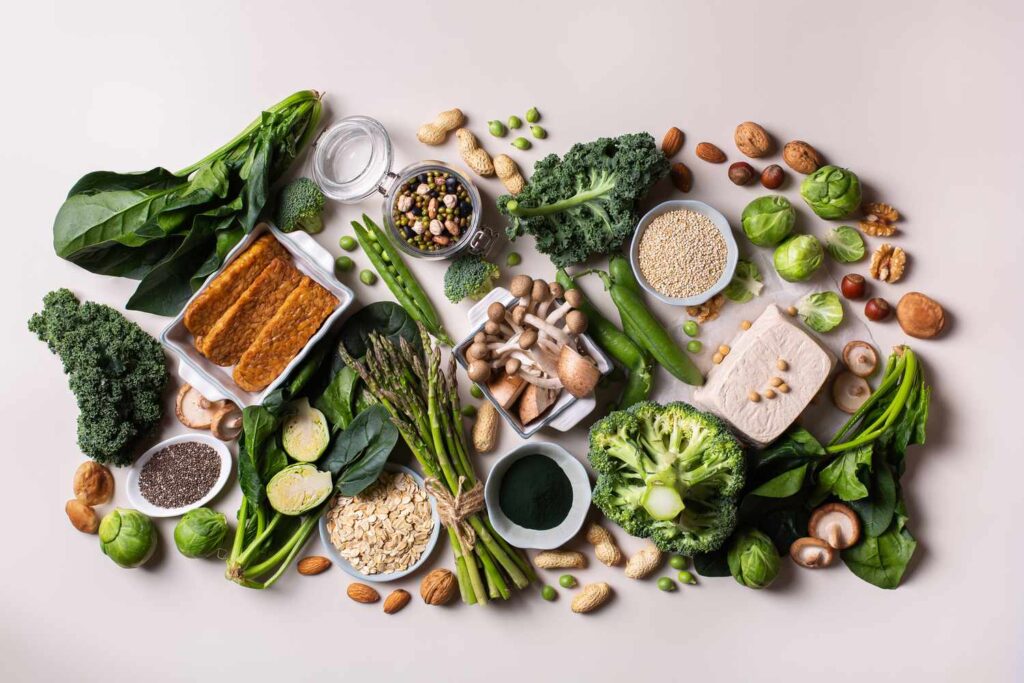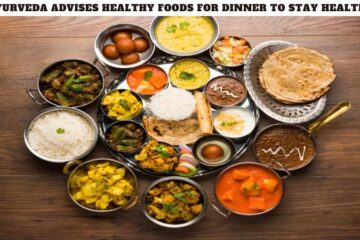
In the journey to maintain a healthy lifestyle, one of the most significant components is protein. Often, protein is associated with non-vegetarian sources like meat, fish, and eggs. However, many vegetarians wonder how they can meet their protein needs through plant-based foods. Fortunately, numerous vegetarian foods are rich in protein and can play a vital role in supporting muscle growth, tissue repair, and overall health. Whether you’re a long-time vegetarian or just looking to cut down on meat, this guide will introduce you to a variety of high-protein vegetarian foods that can boost your health.
Why is Protein Important?
Proteins are made up of amino acids, which are the building blocks of your body. They are necessary for building muscles, repairing tissues, producing enzymes, hormones, and other essential chemicals. Without enough protein, your body can’t perform its basic functions effectively. A protein-rich diet also helps in controlling hunger, promoting fat loss, and keeping you energized throughout the day.
Vegetarians, while avoiding animal products, can still easily consume adequate amounts of protein. The key is to choose the right combination of plant-based foods that provide all the essential amino acids.
How Much Protein Do You Need?
The Recommended Dietary Allowance (RDA) for protein is 46 grams per day for the average woman and 56 grams per day for the average man. These numbers can vary depending on factors like age, activity level, and specific health goals (such as muscle gain or weight loss).
Now, let’s explore some of the best protein-rich vegetarian foods that can help you meet your protein requirements and boost your health.
1. Lentils
Lentils are one of the richest sources of protein among legumes. One cup of cooked lentils provides around 18 grams of protein, making them an excellent option for vegetarians. Lentils are also high in fiber, iron, and folate, which contribute to better digestion, heart health, and brain function.
Ways to Enjoy Lentils:
- Prepare a hearty lentil soup or stew.
- Add them to salads for a protein boost.
- Cook lentils with rice for a complete meal.
2. Chickpeas
Chickpeas (also known as garbanzo beans) are incredibly versatile and offer around 14.5 grams of protein per cooked cup. They are also a good source of fiber, promoting digestive health and keeping you full for longer.
Ways to Enjoy Chickpeas:
- Make hummus and pair it with raw vegetables or whole-grain bread.
- Roast chickpeas for a crunchy snack.
- Add them to salads, curries, or stews.
3. Quinoa
Quinoa is a unique grain because it’s a complete protein, meaning it contains all nine essential amino acids. A cup of cooked quinoa offers about 8 grams of protein. Quinoa is also rich in magnesium, iron, fiber, and antioxidants, making it a nutrient-dense food.
Ways to Enjoy Quinoa:
- Use quinoa as a base for salads or grain bowls.
- Substitute it for rice in your meals.
- Incorporate quinoa into soups or casseroles.
4. Tofu
Tofu, made from soybeans, is a plant-based protein powerhouse. A 100-gram serving of tofu contains about 8 grams of protein. It’s also an excellent source of calcium and iron. Tofu is highly versatile and takes on the flavor of whatever seasoning or marinade you use.
Ways to Enjoy Tofu:
- Stir-fry tofu with vegetables and serve with rice or noodles.
- Add tofu cubes to soups or stews.
- Grill or bake tofu for a crispy texture.
5. Tempeh
Tempeh is another soy-based protein option that is fermented, giving it a firmer texture and a nutty flavor. It contains even more protein than tofu, offering about 19 grams per 100-gram serving. The fermentation process also makes tempeh easier to digest.
Ways to Enjoy Tempeh:
- Slice and pan-fry tempeh for sandwiches or salads.
- Marinate and grill tempeh for a delicious BBQ dish.
- Crumble tempeh as a meat substitute in tacos or chili.
6. Edamame
Edamame are young soybeans that are commonly eaten as a snack or appetizer. A cup of cooked edamame provides 17 grams of protein. They are also rich in vitamins, minerals, and antioxidants.
Ways to Enjoy Edamame:
- Steam edamame and sprinkle with sea salt for a quick snack.
- Add edamame to salads or grain bowls.
- Blend them into a protein-packed dip.
7. Greek Yogurt
Greek yogurt is a thick, creamy yogurt that contains more protein than regular yogurt. A 6-ounce serving of Greek yogurt provides about 15 grams of protein. It’s also an excellent source of calcium and probiotics, which are essential for gut health.
Ways to Enjoy Greek Yogurt:
- Mix Greek yogurt with fresh fruit, nuts, or honey for a balanced snack.
- Use it as a base for smoothies.
- Substitute Greek yogurt for sour cream in savory dishes.
8. Cottage Cheese
Cottage cheese is a dairy product packed with protein. A half-cup of cottage cheese contains around 14 grams of protein. It’s also rich in calcium, promoting strong bones and teeth.
Ways to Enjoy Cottage Cheese:
- Top it with fresh fruit for a high-protein breakfast or snack.
- Add cottage cheese to salads or use it as a filling for stuffed vegetables.
- Spread cottage cheese on whole-grain toast for a quick meal.
9. Chia Seeds
Chia seeds may be small, but they are packed with nutrients, including protein. A 2-tablespoon serving of chia seeds provides about 5 grams of protein. They are also an excellent source of omega-3 fatty acids, fiber, and antioxidants.
Ways to Enjoy Chia Seeds:
- Make chia pudding by soaking the seeds in almond milk overnight.
- Add chia seeds to smoothies, oatmeal, or yogurt.
- Use chia seeds as an egg replacement in vegan baking.
10. Hemp Seeds
Hemp seeds are another plant-based protein source that contains about 10 grams of protein in a 3-tablespoon serving. They also provide a healthy balance of omega-3 and omega-6 fatty acids, which are important for heart health.
Ways to Enjoy Hemp Seeds:
- Sprinkle hemp seeds on salads, cereals, or yogurt.
- Blend them into smoothies for an extra protein boost.
- Add hemp seeds to baked goods like muffins or energy bars.
11. Almonds and Almond Butter
Almonds are an excellent source of protein, with about 6 grams per ounce (about 23 almonds). They are also high in healthy fats, fiber, vitamin E, and magnesium, which are great for overall health. Almond butter provides the same benefits and is an easy way to add protein to your meals.
Ways to Enjoy Almonds:
- Snack on raw almonds or add them to trail mix.
- Spread almond butter on toast or fruit slices.
- Use almond butter in smoothies or as a base for sauces.
12. Pumpkin Seeds
Pumpkin seeds, or pepitas, are a delicious and crunchy snack that also packs in protein. A 1-ounce serving of pumpkin seeds contains about 7 grams of protein. They are rich in magnesium, zinc, and antioxidants.
Ways to Enjoy Pumpkin Seeds:
- Sprinkle them on salads or yogurt.
- Roast them with spices for a tasty snack.
- Blend them into pesto or dips for added texture and flavor.
13. Spirulina
Spirulina is a blue-green algae that is considered a superfood due to its high nutrient density. A tablespoon of spirulina provides about 4 grams of protein, along with vitamins B1, B2, and B3, copper, and iron.
Ways to Enjoy Spirulina:
- Add spirulina powder to smoothies or juices.
- Mix it into energy bars or protein balls.
- Sprinkle spirulina over salads or stir it into soups.
14. Seitan
Seitan, also known as wheat gluten, is a protein-rich meat substitute that contains about 25 grams of protein per 3.5-ounce serving. It has a meat-like texture and can be used in a variety of dishes as a plant-based protein option.
Ways to Enjoy Seitan:
- Stir-fry seitan with vegetables and sauce.
- Grill seitan for kebabs or sandwiches.
- Add seitan to soups, stews, or curries.
Conclusion
Incorporating high-protein vegetarian foods into your diet is not only feasible but delicious and versatile. By consuming a variety of these protein-rich plant-based foods, you can easily meet your protein needs, support muscle growth, boost your energy, and promote overall health. Whether you prefer legumes, seeds, soy products, or dairy, there are countless options available for vegetarians to thrive on a high-protein diet.


